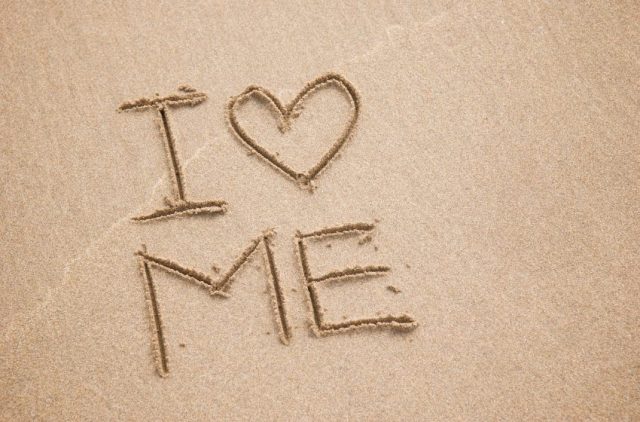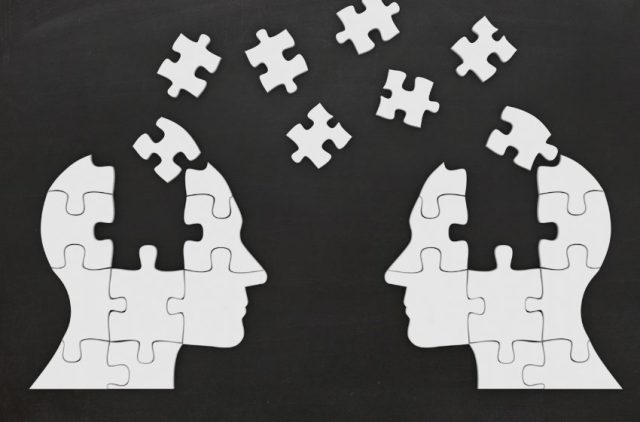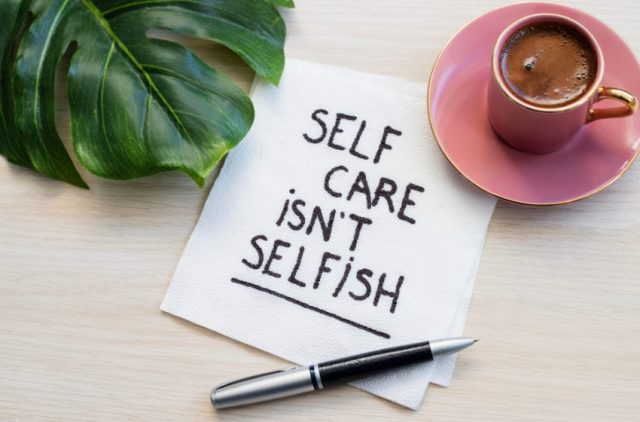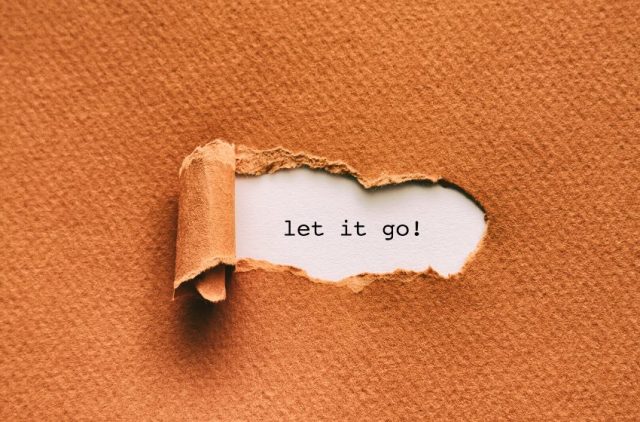27 Quotes About Setting Boundaries in a Healthy Relationship
By Peter Vanderbuild
January 10, 2024 • Fact checked by Dumb Little Man

Every relationship is a vibrant tapestry woven from threads of mutual respect, understanding, and, crucially, boundaries. Setting boundaries is an integral part of nurturing a healthy relationship. It's through these limitations that individuals can preserve their individuality, promote mental well-being, and foster mutual respect.
Relationship boundaries are the “do's” and “don'ts” set by individuals or partners within a relationship. They reflect personal values, comfort zones, and unique needs that contribute to creating a safe environment for emotional and mental growth.
This article presents a curated list of 27 quotes highlighting the importance of setting healthy relationship boundaries. Each quote will be discussed, providing insights into its relevance in fostering respect, communication, empathy, and overall relationship health.
Here are 27 Quotes About Setting Boundaries
1. “Daring to set boundaries is about having the courage to love ourselves, even when we risk disappointing others.”

Setting boundaries in relationships is a demonstration of self-love and self-respect. It's about understanding and honoring our physical, emotional, and mental needs. However, setting boundaries often entails risk, as it may not always align with others' expectations or desires. This quote emphasizes the importance of being courageous enough to disappoint others in the quest for self-care. This courage comes from recognizing our worth and acknowledging that we are equally entitled to respect, consideration, and understanding as our partners.
2. “Boundaries and respect go hand in hand; the first can't exist without the second.”
Boundaries are fundamentally a manifestation of self-respect. They demarcate the line where one person ends, and another begins, signifying our unique individuality, needs, and values. When these boundaries are established and respected, it communicates an understanding and respect for these individualities, needs, and values. Disrespecting boundaries, on the other hand, amounts to disregarding these aspects of a person. Therefore, the existence and effectiveness of boundaries are inextricably linked with the level of respect present in the relationship.
3. “Self-awareness is the first step in setting healthy boundaries.”
To set boundaries, one must first be aware of their personal needs, feelings, thoughts, and discomforts. This self-awareness acts as the foundation for setting effective and relevant boundaries. It is about knowing oneself, recognizing what depletes one's energy, understanding what replenishes it, and being able to communicate these aspects to others. Without a keen understanding of one's self, it is impossible to determine what boundaries are necessary, making self-awareness an essential precursor to boundary setting.
4. “No person is your friend who demands your silence or denies your right to grow.”
This powerful quote addresses two essential boundaries in relationships – the freedom to express oneself and the freedom to grow as an individual. Personal space in a relationship is not just physical but also mental and emotional. It's about having the liberty to voice one's opinions, beliefs, and feelings without fear of judgment or retaliation. Moreover, it encompasses the right to personal growth and change. Any relationship that stifles these aspects, whether it's through intentional dominance or unintentional negligence, can hinder individual well-being and the overall health of the relationship.
5. “In a healthy relationship, open communication is the bridge that forms strong boundaries.”
Communication is a fundamental part of setting and maintaining boundaries in a relationship. It is through clear, honest, and open communication that individuals can express their needs, values, discomforts, and expectations. It allows the other person to understand these aspects, forming a basis for respect and consideration. Without such communication, boundaries would remain unclear or misunderstood, leading to potential violations and resulting conflicts. Thus, open communication forms a vital bridge between the needs of an individual and the understanding of their partner, strengthening boundaries, and fostering healthy relationships.

6. “You can't set boundaries without good communication; they go hand in hand.”
The connection between communication and boundary setting is a reciprocal one. While communication is necessary to establish boundaries, setting boundaries often enhances communication within a relationship. Establishing boundaries requires individuals to articulate their needs, desires, and discomforts, thereby encouraging transparency and openness in communication. Moreover, as boundaries get respected and understood, it further facilitates effective communication by fostering an environment of mutual respect and understanding. Therefore, boundary setting and communication in a relationship are interdependent processes that enrich and strengthen each other.
7. “Respect is the cornerstone of love; it's the boundary that protects a person's dignity.”
This statement highlights respect as the fundamental underpinning of any successful relationship. It is through respect that love is actualized and dignity maintained. Respecting boundaries implies respecting the individuality, needs, and values of another person. It is a protective shield that guards a person's dignity against actions or words that might belittle or harm them. If respect is absent or eroded, boundaries are likely to be violated, which can lead to discomfort, resentment, and emotional harm.
8. “Empathy isn't just listening, it's asking the questions whose answers need to be listened to. Empathy requires inquiry as much as imagination.”
This quote illuminates the essence of empathy in understanding and respecting boundaries. Empathy isn't passive listening; it is an active endeavor to comprehend the feelings and perspectives of another person. It involves asking the right questions, diving into their emotions, and stepping into their shoes. This empathetic understanding is critical in respecting boundaries. When we understand why certain boundaries are important to someone, we are more likely to respect and honor them, fostering a deeper emotional connection and trust.
9. “Every person needs time to refuel, recover, and bounce back. Emotional space in a relationship isn’t a luxury, it’s a necessity.”
Emotional space is the room we need for personal reflection, growth, and self-care. Just as our bodies need rest to rejuvenate, our minds need emotional space to regain balance and perspective. In a relationship, this involves allowing and respecting the partner's need for solitude, personal hobbies, and activities, or time with friends and family outside of the relationship. This space isn't a marker of emotional distance but a crucial element for maintaining individual identity and mental well-being in a relationship.
10. “Self-care is giving the world the best of you, instead of what’s left of you.”
Emotional self-care entails taking care of one's emotional health by setting appropriate boundaries, practicing self-love, and engaging in activities that promote mental well-being. This quote emphasizes that self-care isn't about giving from an empty cup but replenishing oneself to give the best. This can't be achieved without setting and maintaining emotional boundaries that protect one's energy, time, and emotional capacity. In doing so, we are better equipped to navigate relationships without burning out or compromising our emotional well-being.

11. “Physical boundaries are just as important as emotional boundaries. Respecting them shows respect for the person.”
Physical boundaries include considerations about personal space, touch, and privacy. They may vary widely among individuals depending on their comfort levels, cultural norms, personal values, and past experiences. Physical boundaries are crucial for ensuring comfort, safety, and mutual respect in a relationship. Violating these boundaries can lead to feelings of discomfort, invasion, or disrespect. Thus, recognizing and honoring these boundaries is a critical aspect of demonstrating respect for the other person.
12. “Your personal space is your sanctuary; honoring it in others fortifies relationship boundaries.”
Personal space is more than physical distance; it's a person's comfort zone where they feel secure and unguarded. Everyone has a different need for personal space, and respecting this in others solidifies trust and mutual respect in relationships. When we honor someone's personal space, we acknowledge their individuality, respect their comfort, and validate their feelings. This not only reinforces boundaries but also contributes to creating a safe, secure, and respectful environment in the relationship.
13. “Consistency is the key to the successful maintenance of boundaries.”
Setting boundaries is the initial step, but their effectiveness lies in their consistent enforcement. Boundaries should not be fluctuating based on moods, circumstances, or to please others. When we enforce boundaries consistently, we signal to others that we take our needs and values seriously. This consistency fosters predictability and trust in relationships, as others understand our needs and expectations more clearly. Conversely, inconsistency can lead to confusion, misinterpretations, and frequent boundary violations.
14. “Over time, with consistency and dedication, boundaries become stronger and more respected.”
Time plays a significant role in strengthening boundaries. Just as a seed needs time and consistent care to grow into a robust tree, boundaries also require time and consistent enforcement to become well-established and respected. The gradual process of communicating, maintaining, and refining boundaries helps to create a solid foundation for mutual understanding, respect, and trust in relationships. This process is iterative and requires patience and dedication.
15. “During hard times, your boundaries are your armor.”
Difficult times often come with heightened emotions and stress, increasing the potential for boundary violations. However, it is during these times that boundaries are most crucial. They serve as armor, protecting our emotional, mental, and physical well-being from further stress and harm. Maintaining boundaries in such times can prevent emotional exhaustion, burnout, and resentment, while also ensuring that each person's needs and limits are respected even in adversity.

16. “Healthy boundaries are the key to resolving conflicts without losing your self-respect.”
Boundaries and conflict resolution are intricately linked. In conflicts, boundaries can be crossed, leading to feelings of anger, hurt, and disrespect. Conversely, unresolved conflicts can strain and blur boundaries. However, when healthy boundaries are in place, conflicts can be managed and resolved in a manner that respects everyone's needs, feelings, and values. They ensure that disagreements do not escalate into personal attacks and that each person's dignity and self-respect are upheld during the resolution process.
17. “Mutual respect is the foundation upon which relationship boundaries stand.”
Mutual respect is a reciprocal understanding and acknowledgment of each other's needs, feelings, values, and boundaries. It is about treating others how we want to be treated – with kindness, consideration, and dignity. When mutual respect exists in a relationship, it ensures that boundaries are acknowledged and adhered to, fostering a safe and healthy relationship environment. In the absence of mutual respect, boundaries are likely to be violated, leading to resentment, conflict, and potential harm.
18. “Respect is the lifeblood of boundaries. Without it, boundaries die.”
Respect and boundary setting are deeply intertwined. Setting boundaries communicates self-respect and an expectation for others to respect us in the same measure. When we respect another person's boundaries, we validate their feelings, needs, and individuality, and show them that we value their comfort and well-being. Conversely, disregarding a person's boundaries signals disrespect for their feelings, needs, and personal space. Hence, without respect, the very essence of boundary setting – recognizing and acknowledging individual needs and limits – collapses.
19. “Healthy boundaries aren't rigid; they bend and adapt to changing circumstances and needs.”
The quote underscores the dynamic nature of boundaries. While they need to be consistently enforced, they aren't meant to be rigid or unchanging. Boundaries are personal and will vary based on circumstances, relationships, and personal growth. For instance, as we build trust in a relationship, we might choose to adjust certain boundaries. The key is to ensure that any changes in boundaries stem from personal growth and comfort, rather than pressure or manipulation from others.
20. “Change is the only constant in life. Adaptability in boundary setting is an ode to personal growth and understanding.”
As we grow, learn, and evolve, our boundaries may need to change and adapt accordingly. This adaptability is not a sign of weakness or inconsistency, but a reflection of personal growth and evolving self-understanding. It’s crucial to reassess our boundaries regularly to ensure they align with our current needs, feelings, and values. Moreover, adaptability is essential in different relationship contexts as each relationship has its unique dynamics, requiring specific boundary considerations.

21. “Boundaries are evolutionary, just like us. As we grow, so do our boundaries.”
The evolution of boundaries is a natural and necessary part of personal development. As we navigate different life stages, experiences, and relationships, our understanding of our needs, values, and limits evolves. This continual self-discovery should be mirrored in our boundaries, allowing them to be an accurate reflection of our current selves. This quote emphasizes the need to reassess and refine our boundaries periodically, ensuring they remain relevant and effective.
22. “In long-term relationships, maintaining boundaries is the secret to preserving respect and affection.”
As relationships progress, it's easy for boundaries to blur as comfort and familiarity grow. However, even in long-term relationships, maintaining boundaries is crucial. It prevents the relationship from becoming suffocating or one-sided and ensures that respect and personal space are preserved. It also safeguards individual identities within the relationship. Boundaries remind us that even as a couple, each partner has unique needs and preferences that deserve acknowledgment and respect.
23. “The health of a relationship can often be measured by the respect given to boundaries.”
Boundaries play a crucial role in determining the health of a relationship. When boundaries are respected, it signifies mutual respect, understanding, and consideration. It means each person feels heard, valued, and comfortable expressing their needs and feelings. On the other hand, when boundaries are continually violated, it can lead to feelings of disrespect, unease, and resentment. Such a situation can negatively impact the relationship's health, causing strain and potential breakdowns in communication and connection.
24. “A healthy relationship is a balancing act between being together and apart, between dependence and independence. Boundaries are the lines that maintain this balance.”
This quote encapsulates the delicate balancing act required in any healthy relationship. It's about balancing togetherness with individuality, and mutual reliance with personal independence. Boundaries play a pivotal role in this process. If you create boundaries, you ensure that you respect your partner's individuality, personal space, and independence while still maintaining a close, intimate connection. They help us to create a relationship where both partners can grow together and as individuals.

25. “Setting boundaries is not a one-time act. It's a continuous journey of self-discovery, assertiveness, and sometimes, difficult conversations.”
Boundary setting isn't without its challenges. It involves a continual process of self-discovery, where we must understand and define our needs, values, and limits. It requires the courage to be assertive and to communicate our boundaries effectively, even if it may lead to difficult conversations or potential conflict. It also requires the resilience to enforce boundaries consistently, despite pressures or pushbacks. However, despite these challenges, the rewards of setting boundaries—respect, autonomy, improved relationships—are immeasurable.
26. “The journey to establishing firm boundaries is riddled with hurdles. Overcoming them is a testament to one's self-respect and personal growth.”
Setting boundaries often involves overcoming various hurdles, such as fear of conflict, fear of rejection, or discomfort in asserting oneself. However, overcoming these obstacles isn't just about establishing effective boundaries; it's a testament to one's self-respect and personal growth. Each hurdle we overcome strengthens our assertiveness, confidence, and self-understanding, enabling us to establish and maintain boundaries more effectively.
27. “When boundaries are constantly violated, it might be time to cut off and let go. It's a testament of respect for one's self and personal well-being.”
If, despite clear communication and enforcement, boundaries are repeatedly violated, it might be necessary to reconsider the relationship. Continual boundary violations are a sign of disrespect and can cause significant emotional harm. In such instances, cutting off or letting go can be the most self-respecting action. This decision isn't about giving up or punishing the other person; it's about acknowledging and prioritizing one's well-being and emotional health.

Steps on How to Set Boundaries in a Healthy Relationship

Setting personal boundaries is an essential aspect of fostering and maintaining healthy relationships. By clearly outlining our expectations and needs, we communicate how we want to be treated. This process, while it may seem daunting, can be broken down into achievable steps.
- Self-awareness: The first step in setting personal boundaries is to understand your “inner core” — your feelings, needs, and values. Reflect on your past experiences in relationships. Identify what made you comfortable or uncomfortable, what needs were not met, and what limits were crossed. This self-awareness forms the bedrock on which you will build your own boundaries.
- Define your boundaries: Once you understand your needs and limits, articulate your personal boundaries. Remember, these boundaries protect your emotional, mental, and physical well-being. They might pertain to your personal space, time, feelings, or needs. For instance, you might decide that you need a certain amount of alone time each day, or that certain topics are off-limits for jokes.
- Be Assertive: Once you've defined your boundaries, the next step is to communicate them clearly and assertively. Express your boundaries directly and honestly to your partner. Remember, you teach people how to treat you by deciding what you will and won't accept.
- Practice consistency: Consistency is key in boundary setting. Your boundaries protect your “inner core,” and they should be consistently enforced, regardless of changing circumstances or people's reactions. If you waiver or fail to uphold your boundaries, others may not take them seriously.
- Respect others' boundaries: Just as you want your boundaries respected, it's essential to extend the same courtesy to your partner. Understanding and respecting their boundaries is as crucial as asserting your own.
- Regular reassessment: As we evolve, so do our needs and limits. It's important to regularly reassess and adjust your boundaries as necessary. Changes in life circumstances, personal growth, or changes in the relationship may require adjustments to your boundaries.
- Seek professional help if needed: If setting boundaries feels overwhelming or leads to conflict in your relationships, you might find it helpful to seek professional guidance. Therapists and counselors can provide tools and strategies to help you navigate this process more effectively.
Remember, being brave enough to set boundaries is about having the courage to love ourselves, even at the risk of disappointing others. Our personal boundaries protect our individuality and well-being. They ensure that we remain true to ourselves while fostering mutual respect and understanding in our relationships.
FAQs: Setting Boundaries in a Healthy Relationship
How can I set boundaries without hurting my partner's feelings?
Communicating boundaries can be challenging, especially if we're concerned about our partner's reactions. However, remember that setting boundaries is a healthy, necessary part of any relationship. When you communicate your boundaries, do so respectfully and clearly. Use “I” statements to express your needs and feelings without blaming or criticizing your partner. For example, instead of saying, “You never respect my personal space,” you could say, “I need some alone time each day to recharge.” If your partner reacts negatively, remind them that boundaries are about fostering mutual respect and understanding, not causing hurt or division.
My partner continually violates my boundaries. What should I do?
Answer: If your partner consistently violates your boundaries, despite clear communication, it's a serious issue that needs to be addressed. Reiterate your boundaries and the consequences of violating them. If the violations persist, consider seeking professional help, such as a relationship counselor. Remember, continuous disregard for your boundaries is a form of disrespect and can be detrimental to your well-being.
I'm unsure about my boundaries. Is this normal?
Answer: Absolutely! Recognizing and defining your boundaries isn't always easy, especially if you're new to the concept. It involves a process of self-discovery, self-reflection, and sometimes, trial and error. What's important is to listen to your feelings and respect your comfort levels. With time, patience, and perhaps guidance from a professional, you will gain clarity about your boundaries. Remember, your boundaries may evolve as you grow and experience different relationships and life circumstances. It's perfectly okay and normal for your boundaries to be a work in progress.
Peter Vanderbuild
Trevor Fields is a tech-savvy content strategist and freelance reviewer with a passion for everything digital—from smart gadgets to productivity hacks. He has a background in UX design and digital marketing, which makes him especially tuned in to what users really care about. Trevor writes in a conversational, friendly style that makes even the most complicated tech feel manageable. He believes technology should enhance our lives, not complicate them, and he’s always on the hunt for tools that simplify work and amplify creativity. Trevor contributes to various online tech platforms and co-hosts a casual podcast for solopreneurs navigating digital life. Off-duty, you’ll find him cycling, tinkering with app builds, or traveling with a minimalist backpack. His favorite writing challenge? Making complicated stuff stupid simple.






